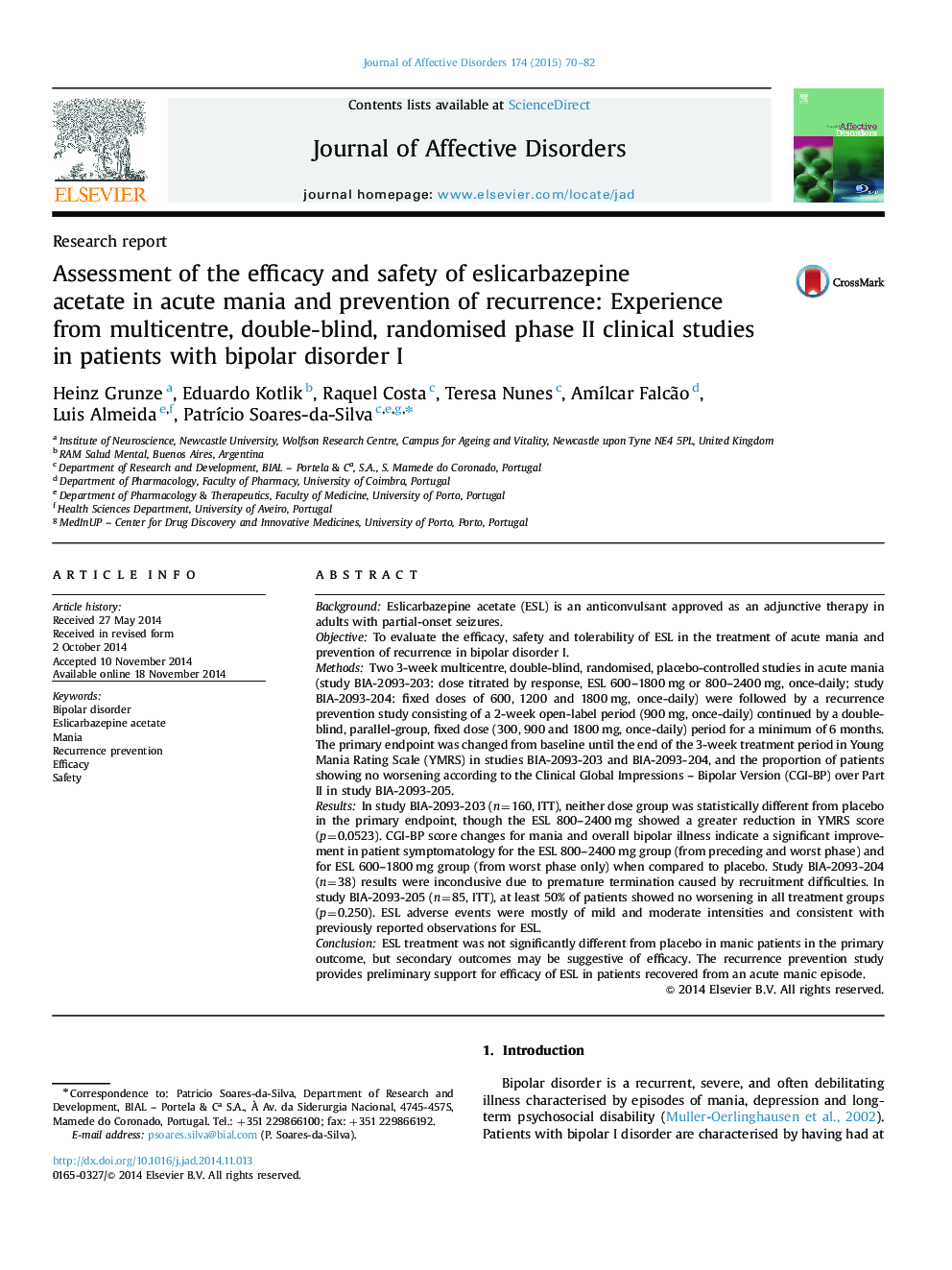| Article ID | Journal | Published Year | Pages | File Type |
|---|---|---|---|---|
| 6231635 | Journal of Affective Disorders | 2015 | 13 Pages |
BackgroundEslicarbazepine acetate (ESL) is an anticonvulsant approved as an adjunctive therapy in adults with partial-onset seizures.ObjectiveTo evaluate the efficacy, safety and tolerability of ESL in the treatment of acute mania and prevention of recurrence in bipolar disorder I.MethodsTwo 3-week multicentre, double-blind, randomised, placebo-controlled studies in acute mania (study BIA-2093-203: dose titrated by response, ESL 600-1800Â mg or 800-2400Â mg, once-daily; study BIA-2093-204: fixed doses of 600, 1200 and 1800Â mg, once-daily) were followed by a recurrence prevention study consisting of a 2-week open-label period (900Â mg, once-daily) continued by a double-blind, parallel-group, fixed dose (300, 900 and 1800Â mg, once-daily) period for a minimum of 6 months. The primary endpoint was changed from baseline until the end of the 3-week treatment period in Young Mania Rating Scale (YMRS) in studies BIA-2093-203 and BIA-2093-204, and the proportion of patients showing no worsening according to the Clinical Global Impressions - Bipolar Version (CGI-BP) over Part II in study BIA-2093-205.ResultsIn study BIA-2093-203 (n=160, ITT), neither dose group was statistically different from placebo in the primary endpoint, though the ESL 800-2400Â mg showed a greater reduction in YMRS score (p=0.0523). CGI-BP score changes for mania and overall bipolar illness indicate a significant improvement in patient symptomatology for the ESL 800-2400Â mg group (from preceding and worst phase) and for ESL 600-1800Â mg group (from worst phase only) when compared to placebo. Study BIA-2093-204 (n=38) results were inconclusive due to premature termination caused by recruitment difficulties. In study BIA-2093-205 (n=85, ITT), at least 50% of patients showed no worsening in all treatment groups (p=0.250). ESL adverse events were mostly of mild and moderate intensities and consistent with previously reported observations for ESL.ConclusionESL treatment was not significantly different from placebo in manic patients in the primary outcome, but secondary outcomes may be suggestive of efficacy. The recurrence prevention study provides preliminary support for efficacy of ESL in patients recovered from an acute manic episode.
